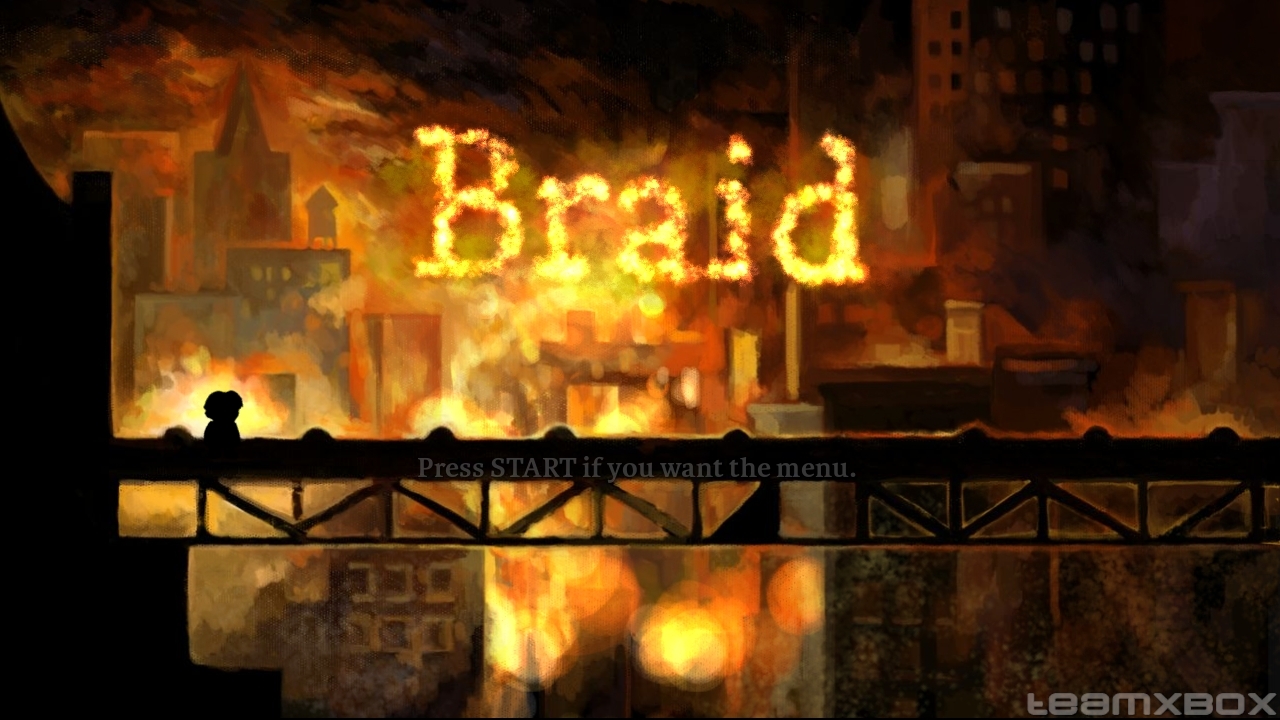
Every now and then a game comes along and takes you by surprise. I had the pleasure of experiencing this a few days ago, and I feel that my horizons as both a gamer and a developer have expanded because of it.
The harbinger of my elation goes by but a single name: Braid.
By now you've probably heard a little bit about Braid here or there - it seems impossible not to. After only a few days on the XBL Marketplace, Braid became the highest rated game on XBL Arcade, and entered the exclusive list of top 10 all-time highest rated games for the Xbox 360, which includes titles like Grand Theft Auto 4, Gears of War, and Bioshock.
While notable in itself, this is quite an accomplishment considering the game was made by only a small team of indie game designers and artists, on an infinitesimally smaller budget than any of the other AAA titles it's contending with.
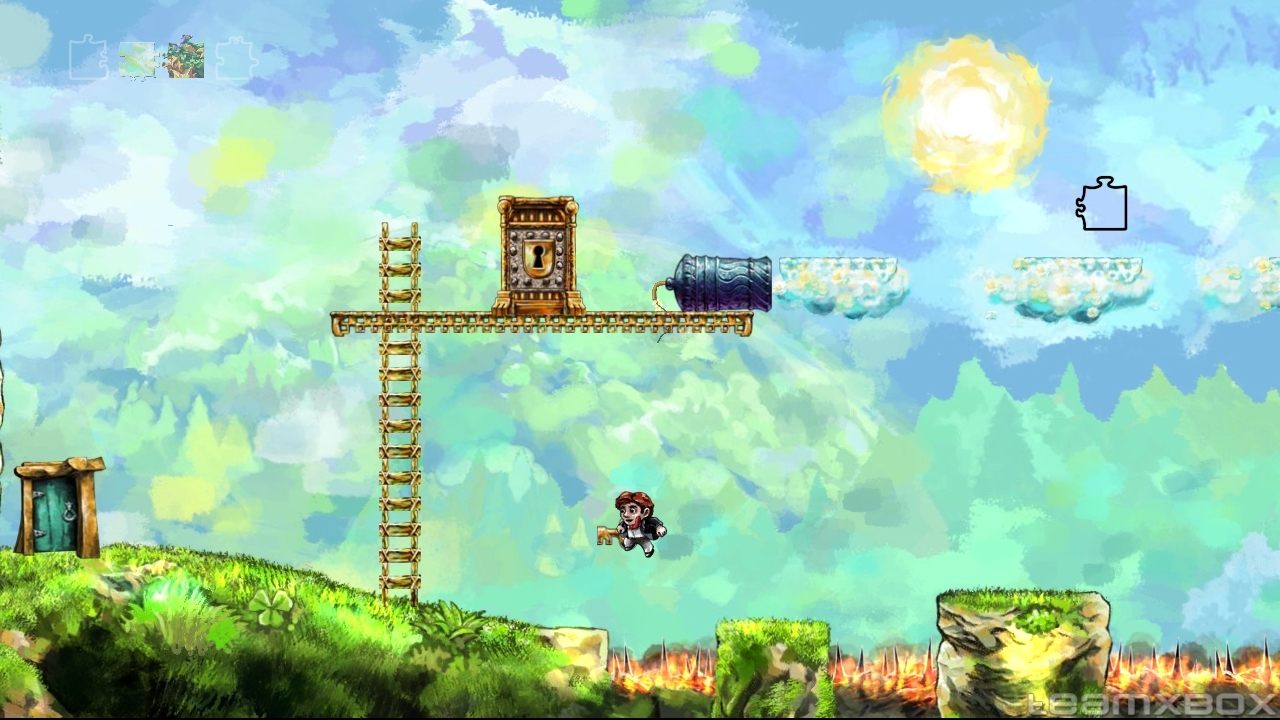
So what's all the hoopla about? At the outset, it's simple enough - Braid is a 2D platform game where you traverse an assortment of levels to find and collect jigsaw pieces. Delve a bit deeper though, and the game quickly sets itself far apart from most other platformers you've played. Time, and the manipulation of it, plays an important role in the narrative of the story, and more importantly, how puzzles in the game are solved. Braid's development team went to great lengths to craft smart, unique levels that take advantage of this element of the game. Each chapter of levels offers a different take on the way time affects you and the environment, with each puzzle more devious than the last. And even though most of the puzzles seem to have only one or two possible solutions, each one will leave you with a feeling of deep satisfaction for solving it.
At this point, I could stop writing and you'd have a pretty good idea of why Braid is a good game, but I really feel that merely describing the game for its amazing technical presentation isn't fully doing it justice. There's a lot more to Braid than that. The entire presentation is mentally stimulating.
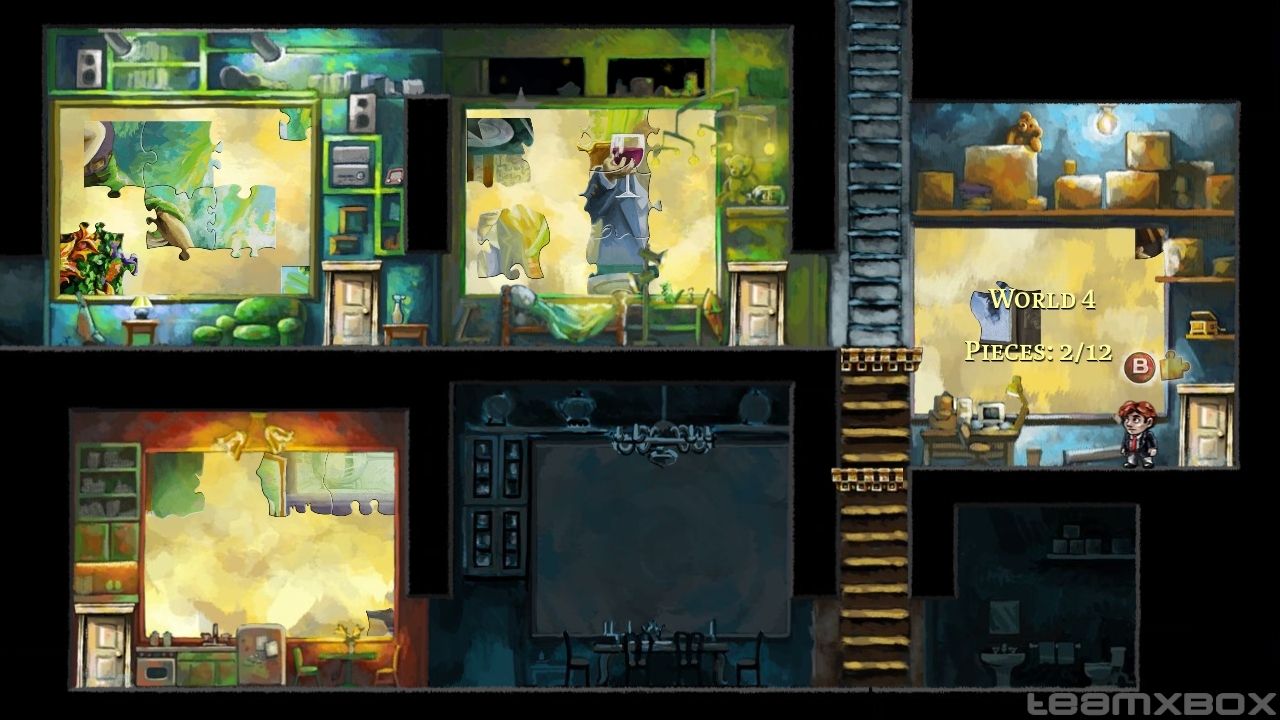
Braid's narrative, told through a handful of dialog boxes and books placed on a series of podiums before each level, tell the emotional story of the game's main character, Tim, and his troubles. The text in the game is well-written, and is in some ways, very touching.
Braid opens with what looks like a painted title screen. After a few moments, you realize that what you're looking at isn't really just a title screen - it's the actual game, and you can actually play it right from the start. I really liked the way the game opens without an interface, and I think it says a lot about how great the game's design is that you don't even need to access any menus until you're ready to leave.
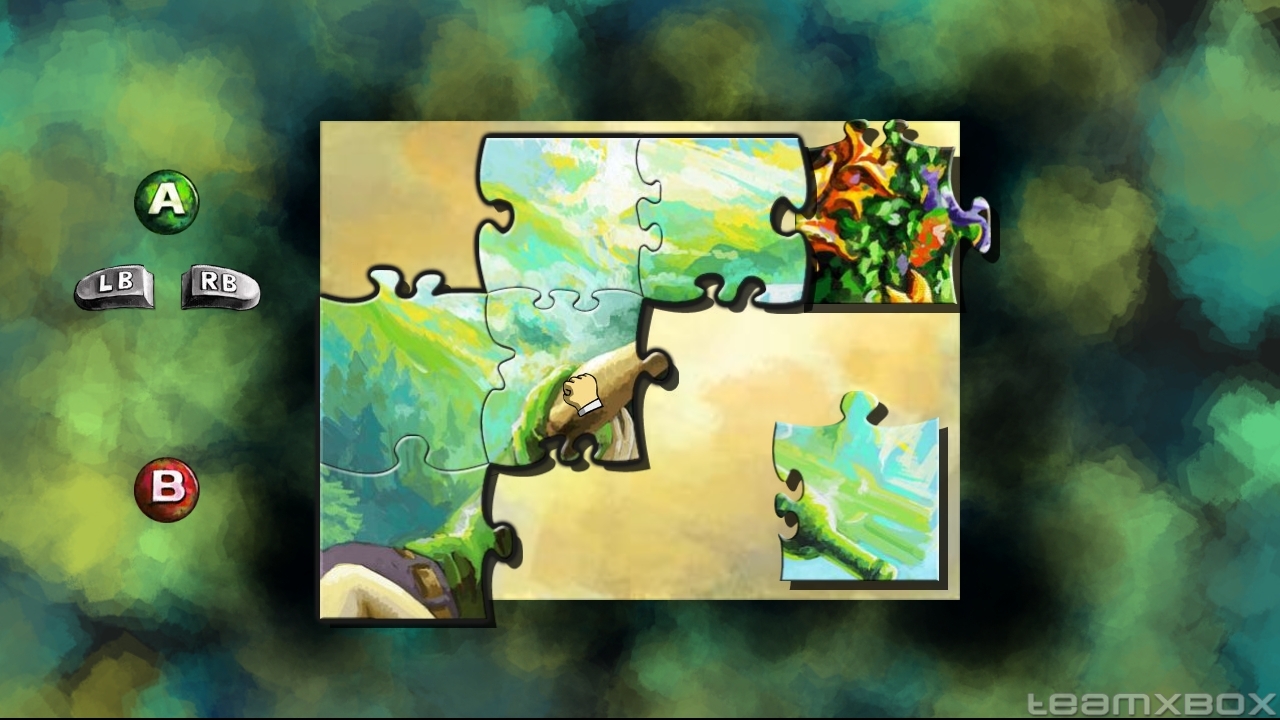
The game's graphics (courtesy of David Hellman) are incredible though; I think I spent the first 20 minutes of the game just looking at the backdrops. Scenes that would look amazing as flattened artwork scroll with depth unimaginable, and everything in the foreground is gorgeous to boot. So much effort was put into making Braid a visual feast, it's almost impossible to imagine that time was spent to ensure the game was enjoyable as well. The soundtrack, licensed from some very talented people at Magnatune, is equally as good as the graphics, and wraps the game in an enchanting veil that lends credibility to the story and completes the presentation in a satisfying way.
I've been playing Braid over the last few days, taking small bites at a time, and trying to complete each puzzle I come across. Everything about the game is incredible, and though I've gotten to the point where some of the puzzles seem a bit on the hard side (or maybe I'm just not trying to do things the right way), I'm having a blast. The $15 price tag sounded steep before I tried the demo, but after only a few minutes of playing, I made the choice to buy.
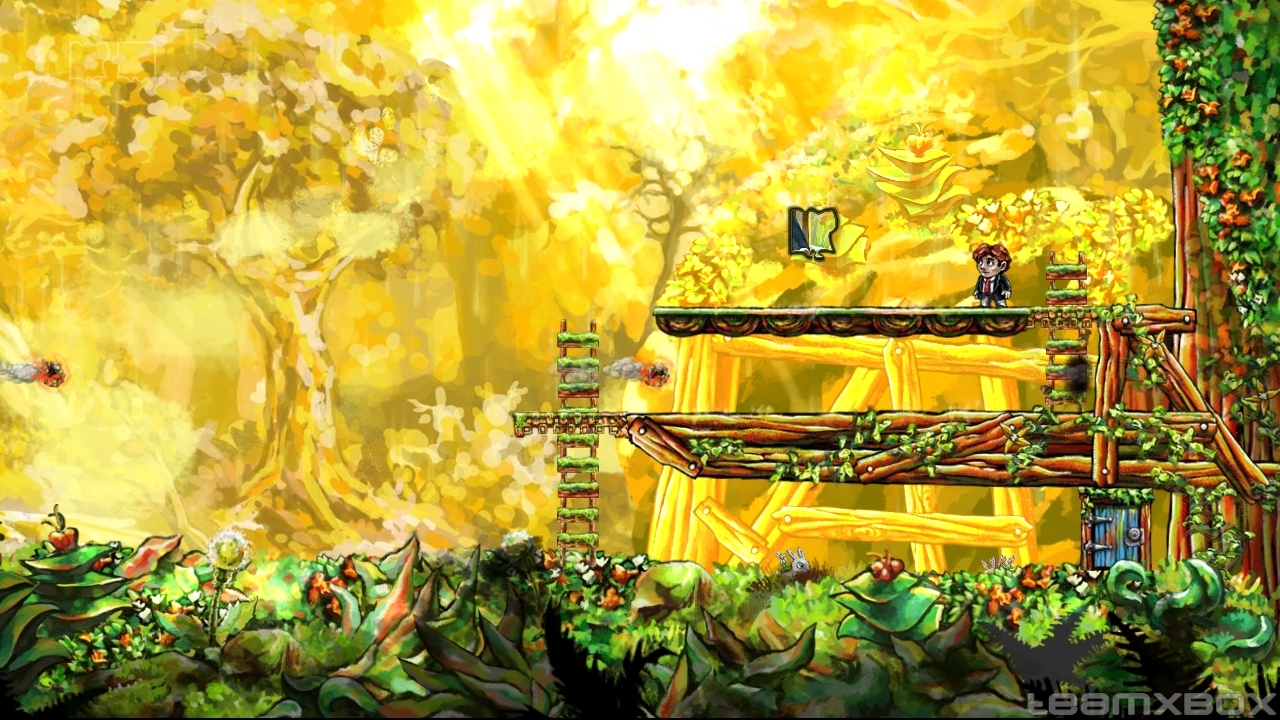
Braid is the collective work of many people who obviously care about their craft, and this shows at every turn. I hope that the Braid team goes on to do create more unique games. This should serve as a lesson to the nay-sayers who cry that indie games don't have a place in the highly commercial world of video games. They do, and Braid proves it without missing a step.
If you've got an Xbox 360 (or if you can hold out for the PC version), buy Braid. It's an amazing game that deserves to be experienced by everyone.